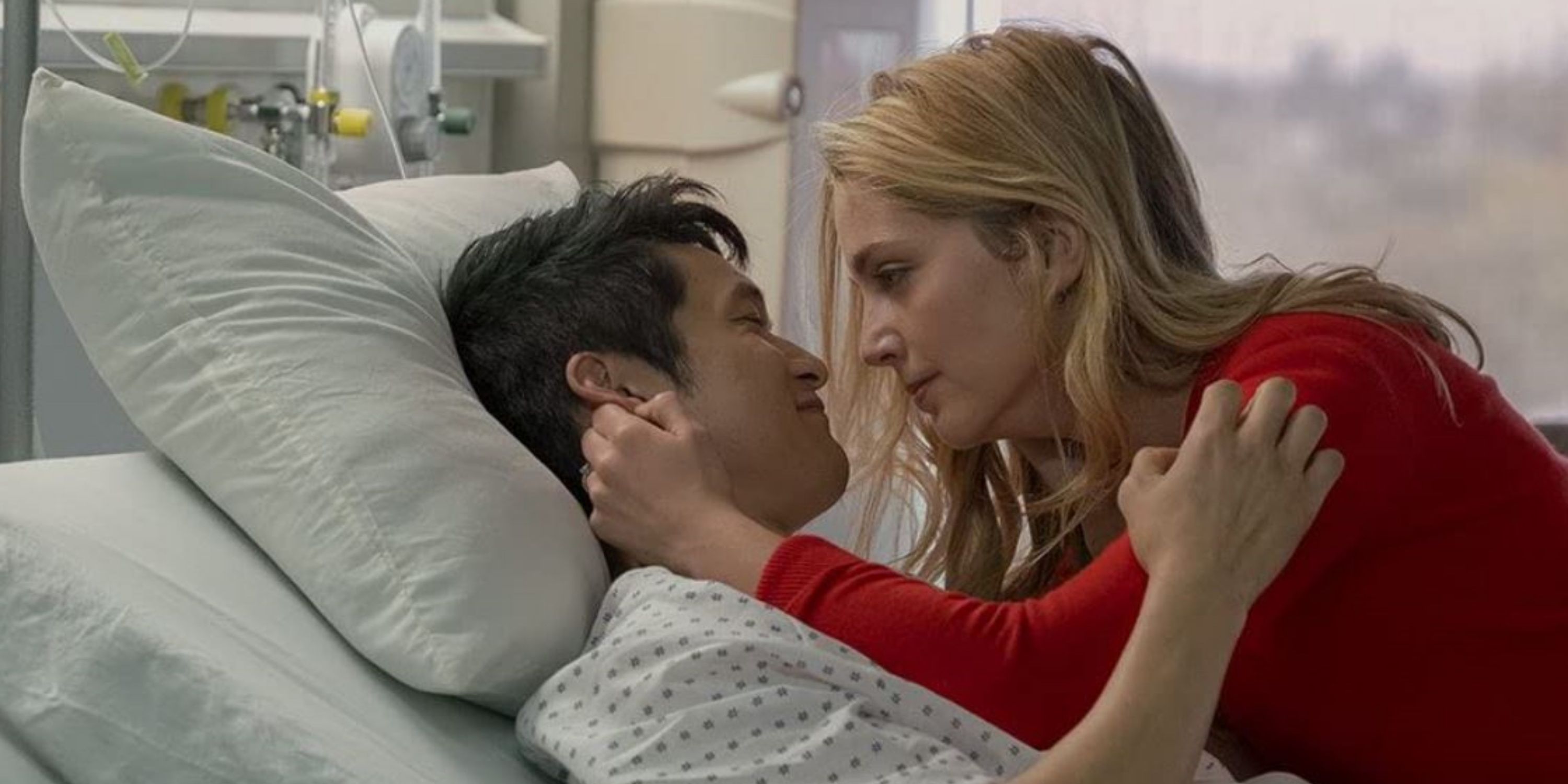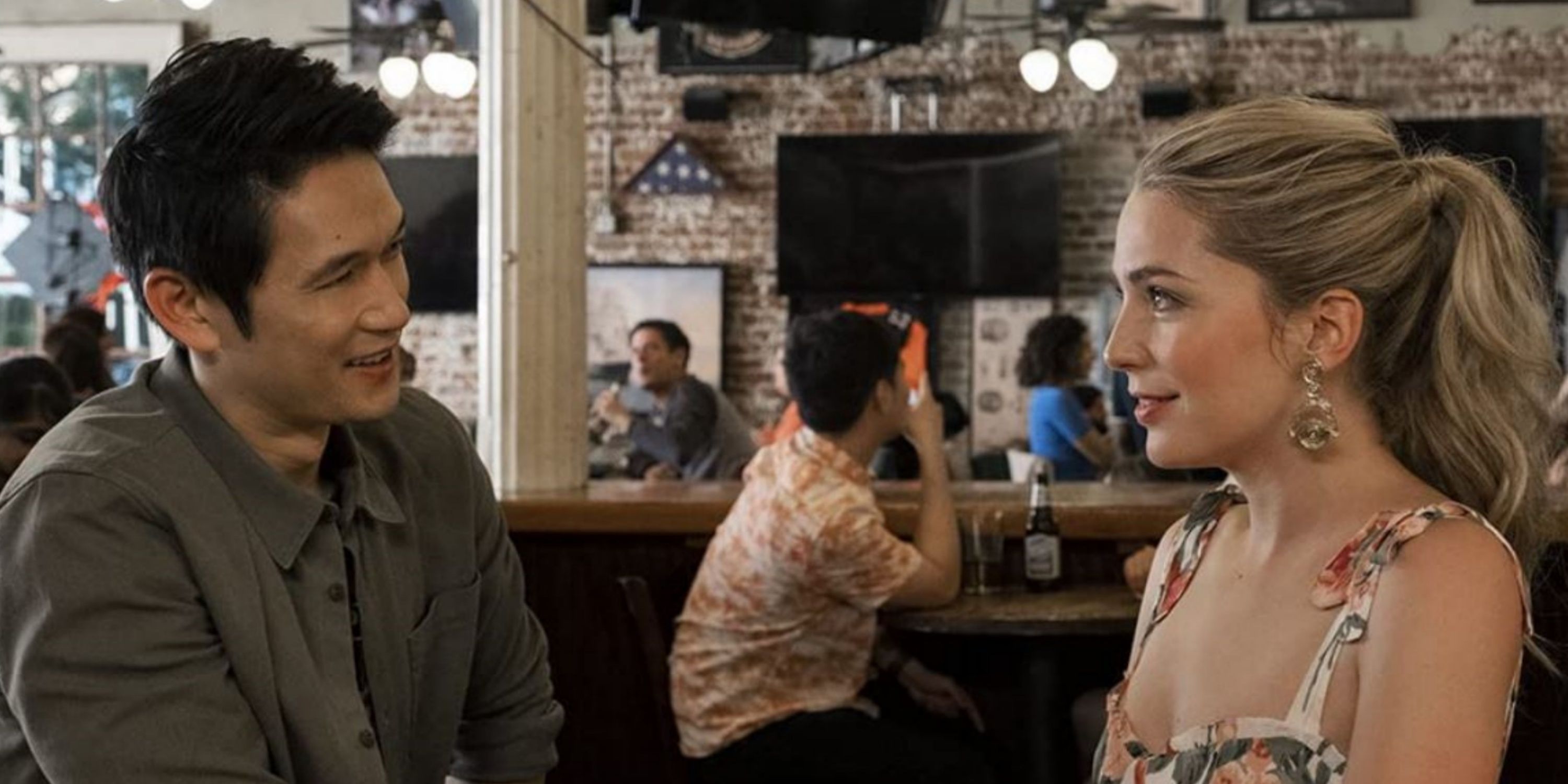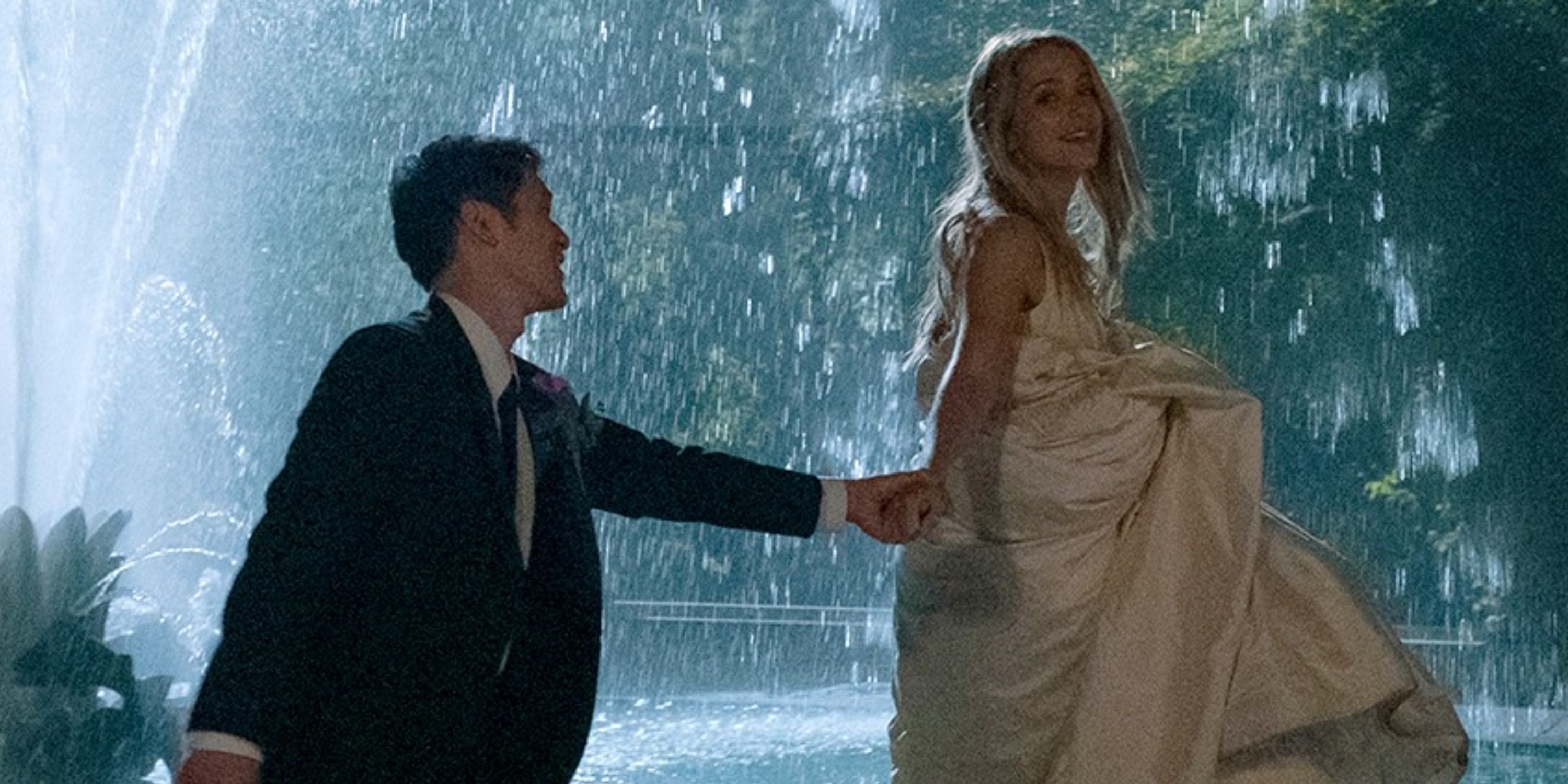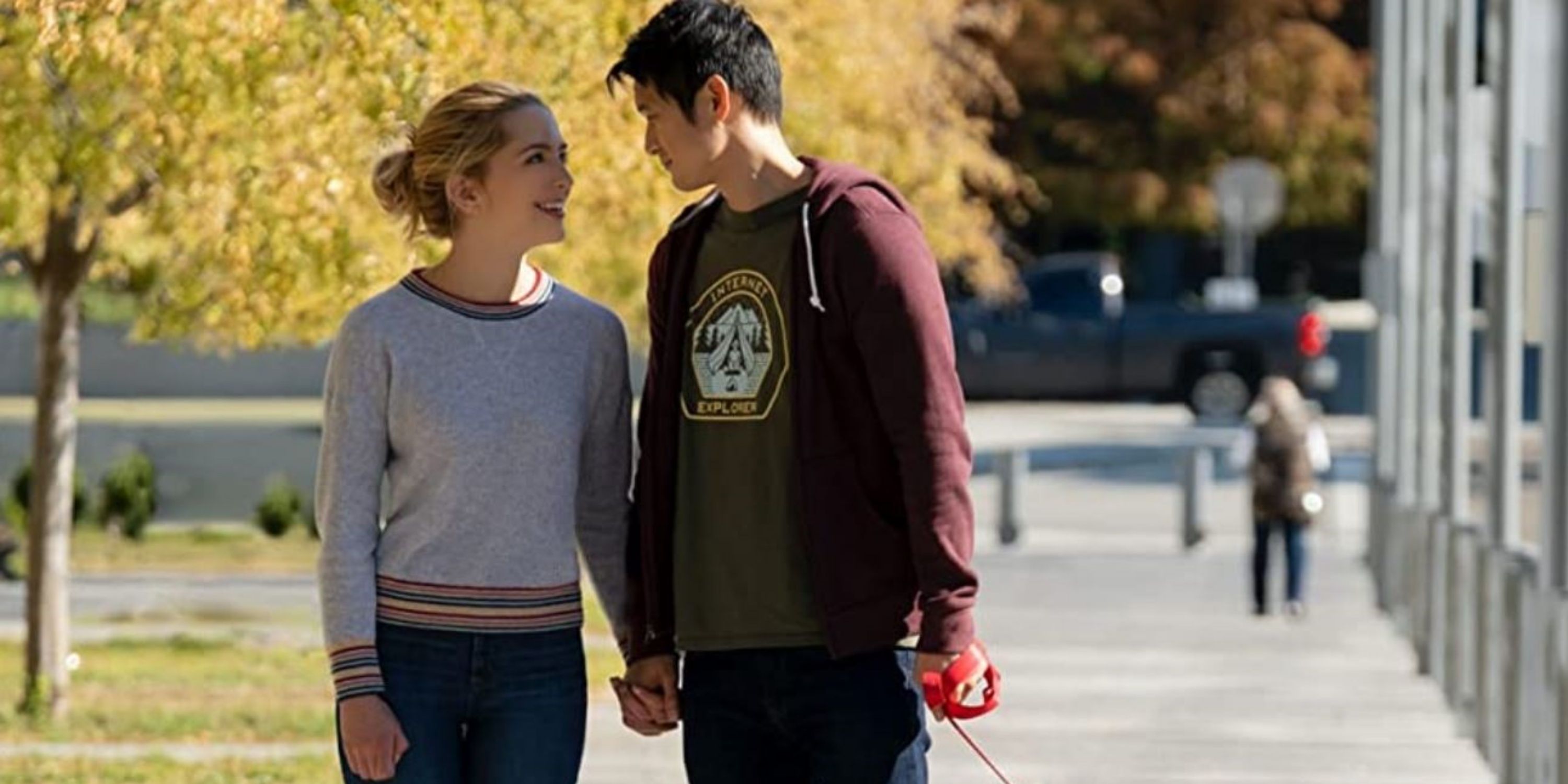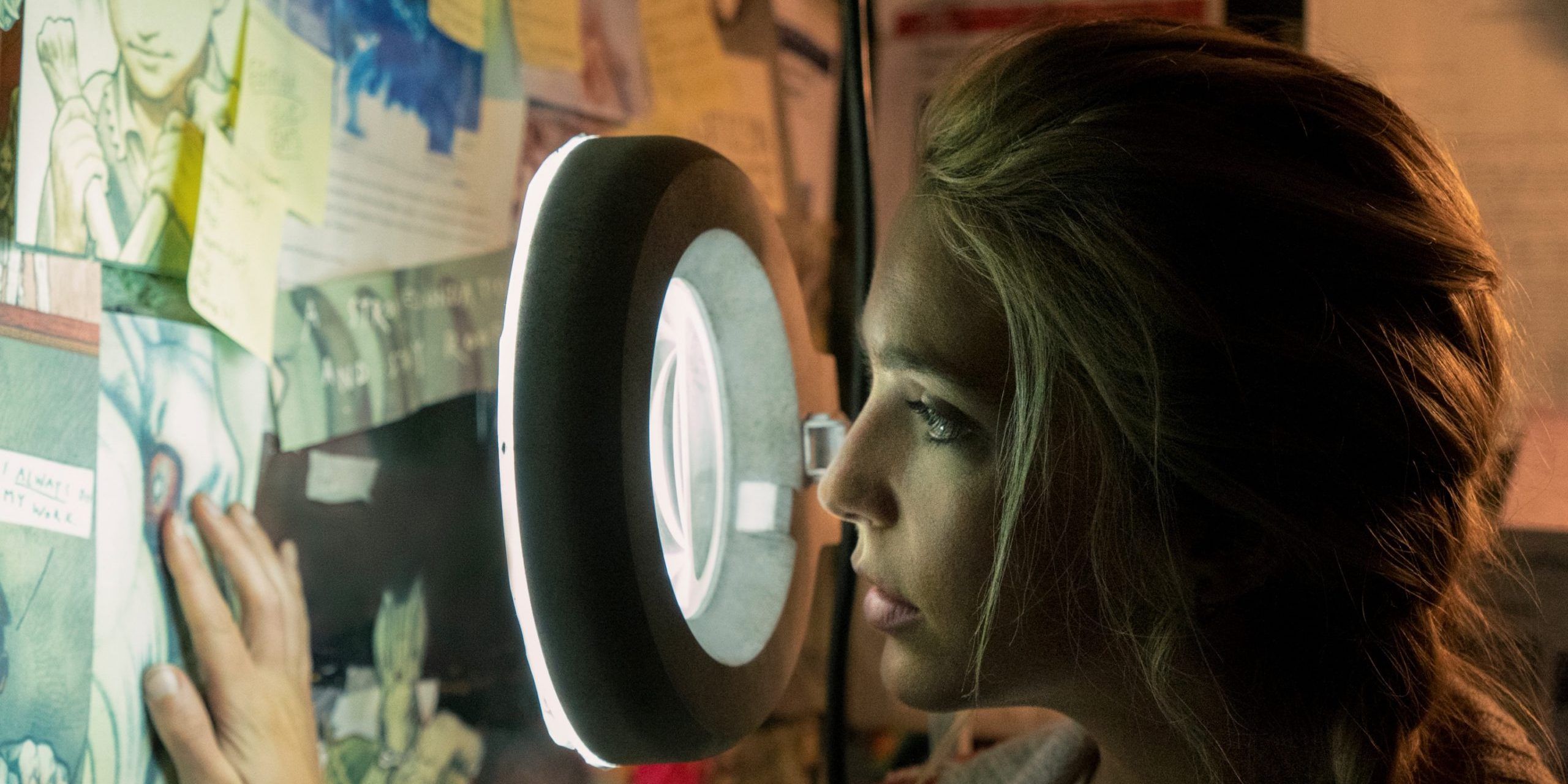From director Marc Meyers and screenwriter Todd Rosenberg, All My Life is inspired by the incredibly moving love story between Jennifer Carter (Jessica Rothe) and Solomon Chau (Harry Shum, Jr.), who find themselves in a race against time. When Sol receives a devastating diagnosis, it accelerates their life together and makes them appreciate every moment along the way even more.
During the film’s virtual press junket, Collider got the opportunity to chat 1-on-1 with actress Jessica Rothe about why she so deeply connected with Jenn and Sol’s love story, the pressure of getting the wedding scene right, the immediate bond she formed with co-star Harry Shum, Jr., and finding the tricky balance in tone. She also talked about playing characters in very different genres, how much she knew about her Utopia story arc before signing on, whether there could ever be a third Happy Death Day film, and branching out into writing her own material.
[Editor's note: The following contains spoilers for Utopia, Season 1, Episode 2, "Just a Fanboy."]
COLLIDER: To start off with a fun and unrelated question, if you could play a character in one of your favorite TV shows, even something that’s not currently on the air, who would you want to play and what would you want them to do in that world?
JESSICA ROTHE: Oh, that’s an amazing question, and one that I had never thought about. I don’t know. Maybe I’d wanna do Breaking Bad and just straight up play Bryan Cranston’s character. That could be really fun and juicy. If I was gonna jump into something like that, I’d be really interested in a gender swap, like being Tony Soprano and doing some awesome lady mob boss period piece. I’m trying to think of what I would have them do. I just wanna do all of the fun things that they do, but with the Jessica Rothe twist. That’s a great question, though. On a fun nerd note, my husband just introduced me to Firefly, which I’d never seen before. I’d totally go hang out in some Western space world. That could be really fun. I could go to the saloon and get into laser bar fights, or something.
When you first read this script, what did you find yourself most connecting with? Much like audiences will do, did you cry when you read it?
ROTHE: Oh, 100%, especially with this one. I cried multiple times, the first time reading it. And then, when I read it again, the waterworks were already loose, so it was like Niagara Falls. The dog gets me, every single time, whether it was the script or the trailer. It’s just is so profoundly sad and touching. Our amazing screenwriter, Todd [Rosenberg], just nailed so many amazing, intimate, and very finely detailed moments like that. One of the things that makes this film so incredibly unique is that there are a lot of very small, personal moments that have so much weight emotionally, whether it’s profound joy or sorrow. I read the script probably a year or a year and a half before I was lucky enough to be attached to it. I got to meet our incredible director, Marc Myers, and talk about it extensively.
Not only did I fall in love with Jenn and Sol, but also their love story, their relationship, and the community that they had built around them, and what a testament it was to who the two of them were as people, that they had such an incredible friend group that was so willing to go above and beyond to show their love and support of them. I also really connected and fell in love with Jenn’s strength, resilience, bravery, quirkiness, and big-hearted joy. I really love that this is the story of a woman who fights for her partner and fights for the life that she wants them to have together. It doesn’t mean living in denial, or never having moments of fear or weakness or complete despair, but instead weathering through those moments and arriving on the other side and realizing that who she is as a person, at the end of the film, is completely because of the incredible love that she had and the amazing man that she married. I related to that, in such a deep and profound way, because I am fortunate that I married my best friend. I knew that I really had to be a part of putting this love story into the world and breathing life into these characters. It just meant a lot to me.
It must be so hard to tell a story like this because you connect to the characters and the relationship, but you know the real life outcome and there’s nothing you can do to change it. Through the tragedy of it all, what do you see as the most joyous aspect of their story?
ROTHE: It’s so tricky because there are these incredibly beautiful, joy-filled moments, like the wedding, the proposal, and even the fountain scene. It’s just the two of them living in this larger than life love story they have that’s so real for the two of them. For me, so much joy comes from the really quiet, intimate moments, like when they’re lying in bed or walking together or brushing their teeth at the same time. Those tiny, quiet, beautiful moments are what make us the people that we are and what makes our relationship specific, unique, beautiful, perfect, and flawed. For me and Harry [Shum Jr.] and Marc, our amazing director, it was important to invest in those small intimate moments, just as much as we were investing in the big, flashy ones.
What is the experience like to get dressed up and shoot a wedding scene? Obviously, you don’t have the same pressure of having to pull off a real wedding, but is there still some pressure in getting that right?
ROTHE: Oh, there totally is. Also, the real Jenn was there for the wedding vows, which was so amazing, beautiful, intense and terrifying. It’s super surreal. I was planning my wedding at the time that we were shooting the wedding. We even talked about getting married in New Orleans and I had looked at the venue that we shot the movie at. So, it was a weird alternate universe version of what my wedding could have been. It’s just so fun. I love my job for so many reasons, but one of them is that I get to play dress up and play pretend in some of the most amazing, bizarre, beautiful ways. It’s every girl’s dream to have a wedding, and I got to have this big, beautiful wedding without the stress of who the caterer would be and who would do the flowers. I got to just show up, which was a dream. There definitely was still adrenaline. I wasn’t marrying Harry in real life, but by that point, we had formed such a beautiful and special connection, and I felt so connected to him, that it does feel important to do it right, not only for us, but because we really wanted to honor Jenn and Sol’s love and their connection. It felt even that much more important to really nail the emotional aspects of that day.
A film like this doesn’t work if you don’t believe and care about the couple at its center. At what point in the process did you and Harry Shum, Jr. actually meet, what was that like to meet him, and did you have a moment where you could breathe a sigh of relief because you felt like it was going to work?
ROTHE: Yes, 100%. I met Harry during the chemistry read, and he was the only person that we auditioned who not only captured Sol’s boyish charm and charisma, and could nail the humor and the jokes, and the chemistry and the love aspect, but he also completely nailed the emotional vulnerability and fear, and some of the much more difficult, tricky, darker scenes and material. Not only that, but the little that we worked together that day, I just got such a sense of respect from him. We could ask each other questions, and experiment and try things, and we both felt very safe. The backbone to any good relationship – on screen or off screen, romantic or friendship – there has to be a huge amount of trust. Both partners need to feel safe because, when you feel safe, you’re willing to take chances and be vulnerable and put yourself out there. That is such a huge part of my process as an actor.
What most tugged at your heartstrings when it came to everything that Jenn and Sol went through?
ROTHE: One thing that will always stick with me, from my conversations with Jenn, was how much he emphasized their conscious choice to approach the remaining time they had together with joy, with a sense of humor, and with positivity. I cannot imagine getting engaged and finding out that you might lose the love of your life soon after. It is something that makes me incredibly emotional. Throughout the whole filming process, I would call Eric [Clem], my husband, every night and thank him for being well, which is something not in his control at all, but it just really struck home for me. I am so in awe of Jenn and Sol and the love that they continue to pour into the world, even when the unthinkable happened to them. As a result, she really does feel like they make the most of every single moment. It’s such a testament to who Sol was that he left a legacy behind that is as big and beautiful and positive as it is. That’s a huge thing that I took away, and I hope that people who watch the film also are able to really internalize that and receive that because I think it’s such a core part of who they were as a couple.
In retelling the story, I would imagine you not only want to be respectful of Jenn, but you also want to do justice to the memory of someone who is no longer here. How did that follow you throughout the shoot? Was that something that you always thought about, or was it something you tried not to think about?
ROTHE: We thought about it quite a bit. It probably fell on Harry’s shoulders a bit more than mine because he was playing Sol. Whenever we were dealing with scenes between the two of them, whether they were positive, happy scenes, or even something as dramatic as the fight, we really wanted to make sure that these were two complex, multi-layered, intelligent, fascinating, wonderful humans that were flawed, but that you love for their flaws. It was constantly a balancing act because, in the pursuit of honoring him and honoring their story, we didn’t want to gloss things over and make it cotton candy. We wanted there to be depth and power there because we felt, and I felt, their story deserves that depth and that complexity. So, I do think that we carried that with us throughout the entire shoot. As a result, there were some days that were incredibly hard. The day when we did the scene reading the obituary, Harry and I had to take turns holding each other because it just hit us how incredibly heartbreaking and unfair it was, how unfair it is that people experience this daily, and how lucky we are. On the very smallest note, we can just hope that this film will bring comfort to people who have been through a similar experience, that it will be cathartic in some way, and that we did honor the memory of two souls, which I really hope we did.
The tone for something like this can be tricky because you want it to be heartfelt, but you don’t want it to be too sentimental or to only be sad. What did you like about the approach that your director, Marc Meyers, wanted to take with this and the way that he wanted to tackle this material?
ROTHE: The thing I love the most about working with Marc is how organic his process is. It always came from the homework that I had done, or that Harry and I had done, or that Harry, Marc and I had done. We always just came back to, "What is happening in this scene? What do we need to learn, in order for the story to progress? And where are these characters, emotionally?" At the core of this film is the story of a relationship, and that’s the part that we have to buy. The fact that Marc was always taking it back to there is one of the reasons we were able to balance all of the things. It is tricky, going from comedy to drama and finding all of the nuances, but that’s also so incredibly human. To me, the key of the human experience is juggling great joy and great sorrow. Because we were always approaching it from a really human, grounded place, hopefully that’s how we were able to avoid the film being saccharine or overly soapy.
You play such very different characters from each other, just from Valley Girl to Utopia to All My Life. Did you know, from the beginning of signing on for Utopia, that your character’s journey would be what it was and that it would end the way that it did?
ROTHE: I did, luckily, because otherwise I would have been in for a rude awakening. I was one of the lucky ones who knew that. That was the joke among the nerds. It was like, “Behave or Gillian [Flynn] might kill you off.” But I knew that I was the red herring leader of the group and that I was going to be the sacrificial lamb to be brutally murdered. I loved that opportunity so much and I love that cast. I love playing really, really different parts in really different genres. I love stretching myself and challenging myself and putting myself in uncomfortable positions because I’ve never tried them before. I think that’s how we learn and grow, as humans and as artists. I feel incredibly fortunate that I’ve had so many diverse, different opportunities.
As an actor, what’s it like to shoot a moment like that and what’s it like to actually see the finished moment?
ROTHE: Shooting it is surprisingly technical. It’s intense when there’s someone pointing a gun in your face. Even if you know it’s not real, that’s still very intense. That scene is so emotionally heightened, but I wanted Sam to have a moment of thinking she had fixed it. Just a brief breath of the audience going, “Okay, everything’s fine,” before it happens, because then it’s more fun and juicy and weird and messed up. The whole time, I was just thinking, “My mom is gonna hate this. My mom’s gonna hate this so much. She’s gonna be so upset.” And she was. She was very upset. But I like stuff like that. I think it’s really fun. When you break down a stunt like that, especially if someone is killed, there are just so many technical aspects that it’s never as charged or emotionally fluid as you maybe would like it to be.
You’ve also been a vocal supporter of a third Happy Death Day movie and getting to tell more of that that character’s story. What do you think the chances are of actually getting to do that third film? What actually needs to fall into place to make that happen?
ROTHE: All I’ll say is that I know [director] Chris [Landon] has the idea in his brilliant brain because he is a genius, he is a master, and he’s one of my favorite humans in the whole world. I honestly don’t know. Making movies is such crazy alchemy and chance, and a mixture of luck, money, and right time, right place. The thing that I know, and that Chris and I feel strongly, is we only want the movie to happen if it’s going to happen in the right way, to finish out Tree’s story, to really give support to the two incredible films that we made before, and to honor our fan base. They are so incredibly loyal and I love them, and I love how much they love Tree, and I’d never one to let them down. Who knows? 2021 is a new year. I feel like there’s a lot of possibility. Once we get out of 2020, I think anything can happen. In 2020, not so much, but once we’re on the other side, the sky’s the limit, so who knows?
Do you know what you’re doing next? Are you shooting something now, or are you trying to figure out how to do that next thing in as safe a way as possible?
ROTHE: Yes to all of the above. I don’t know when my next time on set will be. I was actually attached to something before COVID started, but it is a project that is impossible to do with the COVID restrictions, so I think it’s gone away for awhile, which is okay. I’m actually writing something right now, which is an undertaking I had embarked upon even before COVID, and COVID just gave me a lot of time to sit down and actually write, which is incredibly hard. Anyone who is a writer has my utmost respect because, holy cow, it sucks sometimes. My writing partner and I are honing in on what will hopefully be our last draft before we go to try to get this thing greenlit and put it out into the world. So, an optimistic part of me is hoping, maybe next year, to go off and shoot this movie. I would also act in it, which would be so weird and wild, but we all gotta try things that make us uncomfortable.
Is staring at the blank page as terrifying as many people say it is?
ROTHE: Oh, it’s a horrible. You’re like, “Oh, wow, I have nothing to say. All of my thoughts are garbage.” It’s all of the worst internal criticism that you can possibly imagine, in one place. When I’m on set, if I’m struggling with a scene, I have the director there to help me or my co-stars. I’ve hopefully been doing this long enough that I have a couple of tricks up my sleeve to fake it till I make it. But with writing, maybe I’m just faking it the whole way. That might be what the writing is. It’s just a lot of faking, and every once in awhile, it turns into something. It’s been an incredible learning experience. It’s been a long time since I used my brain in such a different way. So, I’ve been doing that, which has been fun. And I’ve actually gotten really into pottery. I rented a wheel for the first couple of months of quarantine and learned how to make bowls, so that was fun.
All My Life is now playing in theaters.

